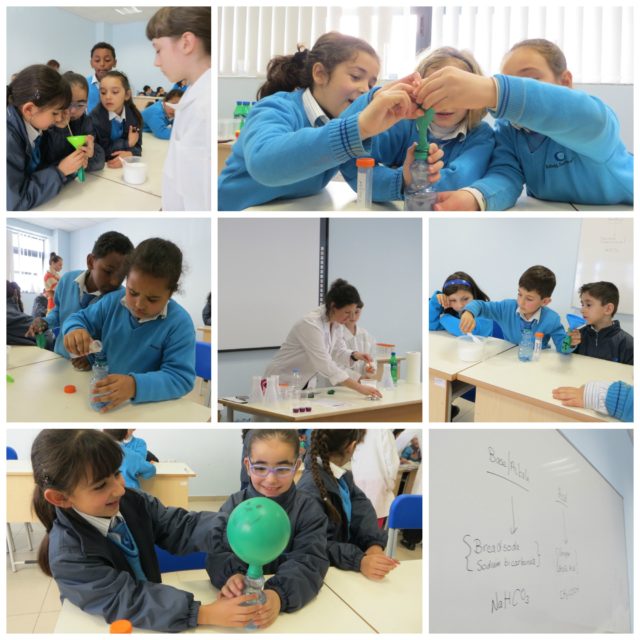I am just back from a week in Malta. I was attending the annual Science Expo and I was really impressed with how well it was organised and the level of enthusiasm and knowledge among the children. From primary school level, right up to third level, students came up with some great ideas, prepared, tested, recorded and then presented their projects with confidence.
The ideas presented varied widely from what conditions help us on memory tasks to investigating the use of apples to combat dust mite allergies (a subject close to my own heart). The place was abuzz with invention, innovation and imagination.

You can check out the winning projects on the NSTF facebook page.
One project looked at the effects of smoking on a number of levels. The team involved went as far as to set up a Facebook page to emphasis their research, a really great idea, you’ll find it here.
WORKSHOPS
There were also a number of workshops running for the week. I ran an interactive one on acids and bases, a workshop created to show children how easy it can be to do science experiments with things you may have in your own kitchen… because science is an anywhere kind of thing.
I was lucky to have my daughter with me for the week, she was a great help and even got to demonstrate the first experiment to the class.
(video credit: Iris Nijman)
This Inflating balloon experiment is a really simple one but I love the squeals of excitement when the balloon starts to grow, even when the children have anticipated what is to come.

One class to visit my workshop was from the International School in Malta. I was charmed when at the end of the workshop, each child thanked me in their own language. There was 16 kids in total, and I received a thank you in 14 languages!
There were many other great workshops throughout the week, I was just disappointed that I could not sneak in and have a look at them all.
On a national level there was the forensics division of the Maltese police force, explaining to children some of the techniques they use as well as allowing children try some forensic experiments themselves. There was also a very informative shark exhibition run by the shark research centre on the island. My daughter attended their workshop and came back with lots of great facts to share with me.
There was also plenty of international outreach programs represented at the Expo.
Iris Nijman of Universe Aware ran a workshop informing children about the conditions on the planets in our solar system, then the children got to create their own alien that was adapted to life on one of the planets they had learned about. This was a great way to make the workshop interactive for the children and a unique way to make the information much more memorable.
Jeppe Petersen brought an interactive workshop on light to the Expo, funded by the Danish Youth Association of Sciences (UNF) at and the International Movement for Leisure Activities in Science and Technology (MILSET). This workshop was hands on and tailored to each age group and each learning level.
In João Retrê’s workshop children got to make their own planets from the solar system and then place them in their correct location on a scaled model. A great way to get a grasp of the perspective of each planet and its size and distance from its neighbouring planet. This workshop was part of the Portuguese Institute of Astrophysics and Space Sciences outreach program.
Mel Evans, from Cheltenham University, posed some very interesting questions as part of her PhD studies… how accurately is science portrayed in films and what is our interpretation of it? Does the film industry have a moral obligation to depict science with accuracy or is it acceptable to go well beyond the realms of possibility? Do we think that what we see in a film is possible in reality? Mel posed all these questions as she shared and discusses a number of popular film clips and received some very interesting responses from the children and their teachers.
Simon Guilliams from Belgium presented his self-built tri-copter at the Expo. Simon was a winner at the Belgian Science Expo with the tri copter he built in his back yard, starting at the age of 14 and building and improving it over the last four years. His prize was a trip to the Maltese Expo and a chance for him to share his creation.
SOME OF THE SITES OF MALTA
Of course our week in Malta was not all about science, we also got to see some of the island. We were a mere 15 minute bus drive from the beautiful capital, Valetta. We viewed this first by night, on a very informative walking tour of the city (organised by the NSTF). It was lovely to return again and see the same sites by day, soaking up the atmosphere as well as the Sun’s rays. There were many other activities organised for us by the NSTF, including a country walk at the North end of the island and harbour boat trip.


